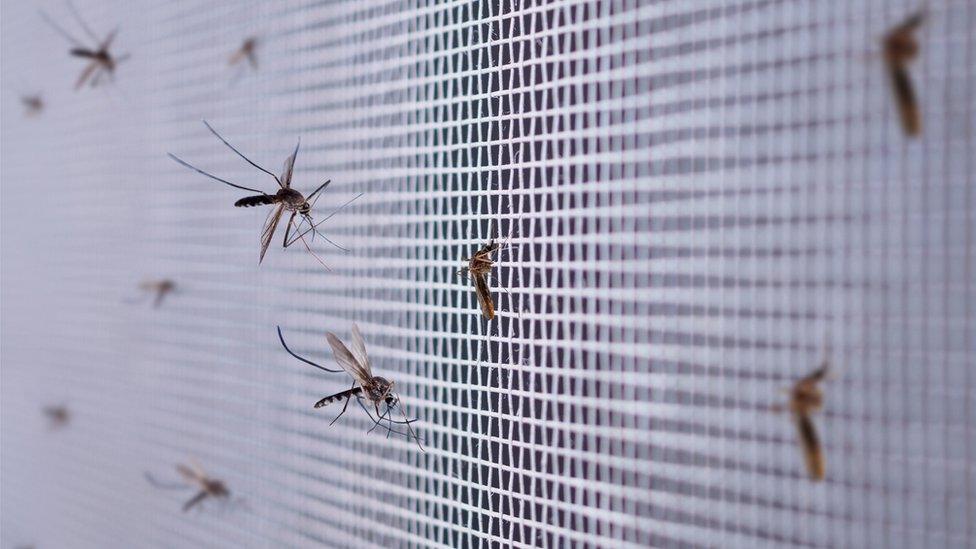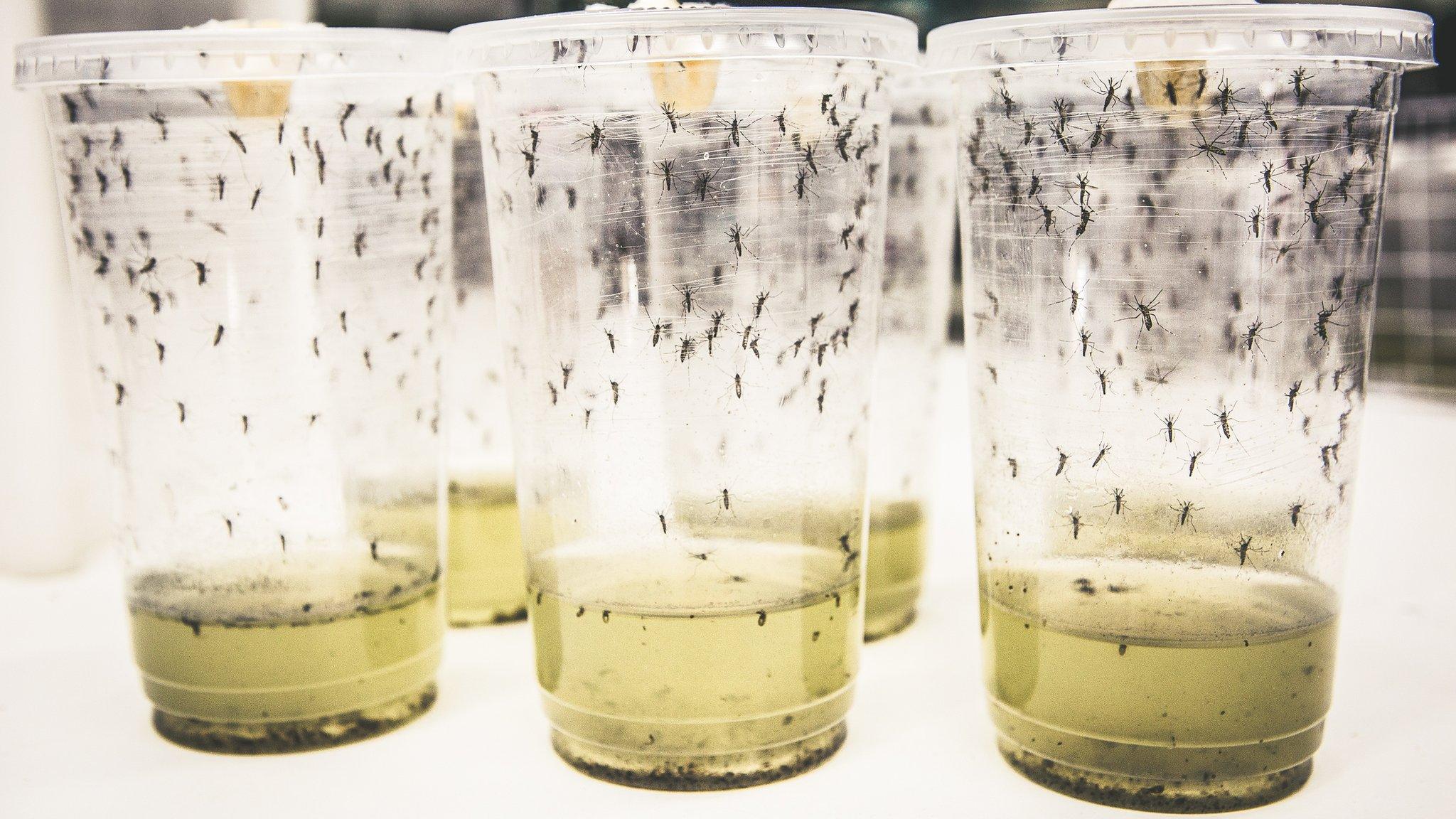Zika and dengue may make humans more attractive to mosquitoes
- Published

Mosquitoes on a net
Zika and dengue fever viruses alter the scent of humans and mice they infect, research, published by Cell, external, suggests.
This makes them more attractive to mosquitoes, which then bite them and carry the viruses to the next victim.
Spread in tropical areas, dengue causes fever, external, rashes and painful aches and can be fatal.
Zika can cause birth defects, if pregnant women infected, but most adults have mild or asymptomatic cases, external and usually recover in a few days.
Scientists at several Chinese labs, including the Chinese Centre for Disease Control and Prevention and the Tsinghua University, in Beijing, found smelly molecules on the skin of mice with dengue made them a lot more susceptible to mosquito bites.
The molecule with the most attraction, acetophenone, which increases in people and mice with dengue or Zika, was then applied to the hands of human volunteers.
The researchers are now looking for treatments that target acetophenone.
Covering up with clothing and using bed nets and insect repellents are currently the best ways to avoid bites.
There are thought to be up to 400 million dengue infections every year.
And Zika has been reported in 86 countries around the world.
The viruses are most common in South and Central America, Africa, the Caribbean and parts of Asia.
Yellow fever, Japanese encephalitis and West Nile disease are also viruses in the Zika family.
Related topics
- Published10 June 2021

- Published22 November 2019
